Today, businesses value the ability to process huge amounts of data as quickly as possible. Even more so, they appreciate the ability to analyze that extracted data to predict future changes and solve problems.
Data Analytics is a valuable asset, but something even more powerful is needed to do something like predict customer satisfaction rates. Today we’re talking about how Artificial Intelligence and Machine Learning can enhance Data Analytics.
Machine Learning for Data Analytics
Machine Learning is a set of algorithms that computers use to perform various tasks without instructions, relying on patterns and cause-and-effect links. Traditional Data Analytics can’t do much with fast-changing and unstructured data.
Machine Learning is great for finding correlations between information gathered from a bunch of sources and various factors. Combined with Data Analytics, this technology can help businesses extract more benefits from data, improve their strategy, cut costs, and refine workflows.
When implementing ML for information compiled by Data Analytics, there are a variety of ways to go about it:
- Supervised Machine Learning. This is the easiest way of setting up ML. The process is reminiscent of a training process. For instance, if we need a machine to recognize a certain object from an image, we expose it to many images with the particular object labeled.
- Unsupervised Machine Learning. In this case, the computer has to identify patterns and find the right information from the Data Analytics system on its own. There are no labeled data and no human intervention.
- Semi-supervised Machine Learning. Here the machine has an incomplete pool of training data to work with. It is very useful when the system has experienced lost or corrupted data.
- Regression and Classification ML Algorithms. Regression algorithms help predict continuous value, taking into account many factors such as price, length, size, etc. For instance, the machine might be used to predict property price changes. Classification algorithms are used by the computer to output the data based on a limited set of factors, such as identifying gender.
How Companies Can Benefit From Machine Learning for Data Analytics
Let’s take a better look at ways businesses can apply Machine Learning to make the most of data analysis:
Computer Vision. This technology helps extract information from images. Now we have the facial recognition technology, object recognition which ensures security, enhances translation services, controls traffic, and more.

Anomaly Detection. It helps to make sure the workflow is flawless. Businesses can identify abnormal data, find data leaks and security breaches and so on.
Predictive Analytics. If applied to data analysis, Machine Learning can go further and try to predict change based on historical data. That way, it is much easier to adjust the business strategy.
Natural Language Processing. Machine Learning takes emails, reviews, tweets, and other unstructured data and extracts the necessary information. Businesses can apply NLP to monitor social media, comments, reviews and find out what customers think about the product. It also allows for customer service optimization.
Customer Analytics. Powered by Machine Learning, Data Analytics can be used to perform a thorough investigation of the businesses’ customers. The machine can study their preferences in products and services, demographics, and many more factors to better the service.
Want to integrate Machine Learning into your Data Analytics solution?
We provide skilled professionals to tackle your project.
Aleksandra Golik
Head of Sales
at HQSoftware
Recommender Systems. Any business is interested in keeping the client engaged with the product or the service. To do so, it is important to give the client exactly what he wants, and that’s complex recommender algorithms matter.
Nobody likes to look through a bunch of irrelevant stuff to find something appealing — so it is best to keep the relevant product in front of the client. Machine Learning can do just that — based on the data about what a particular client has enjoyed, the system can determine what other product or service he might like as well.
ML and Data Analytics Use-Cases
E-commerce — here the businesses can benefit from recommendation algorithms, the ability to predict customer churn, and customer behavioral analysis. This way, it is possible to enhance the product and target the sales towards the right clientele.
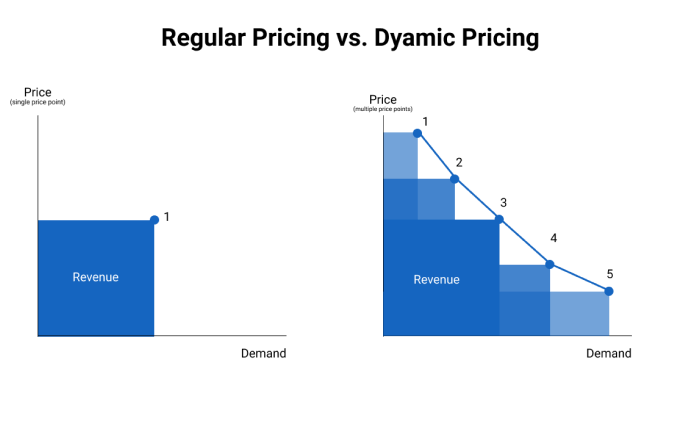
Machine Learning also offers the possibility to change prices based on the customer’s behavior, season, or other factors. Since online shoppers tend to compare prices a lot, dynamic pricing is a great feature to have.
Marketing — businesses can use machine learning to automate their workflows. For instance, they can prioritize certain leads over others.
To analyze their clientele, businesses can make use of the RFM analysis. RFM includes such factors as recency, frequency, and monetary. Uses Machine Learning to find out which customers spend the most money; which ones spend the least money; which are the most loyal to the business; which ones are less likely to buy from the business again, etc.
A thorough analysis of the audience lets marketers better target the ads towards customers, have more successful sales and discounts that customers can actually take advantage of.
Customer Service — some companies have managed to use Machine Learning algorithms to predict customer satisfaction. The Algorithm takes into account several factors, such as the total time it takes to resolve a problem, response delay, as well as various customer satisfaction ratings.
Healthcare — for medical purposes, ML technology is great at predicting the likeliness of certain illnesses. The computer can study historical data from patients and compare them to the symptoms which a certain patient exhibits.
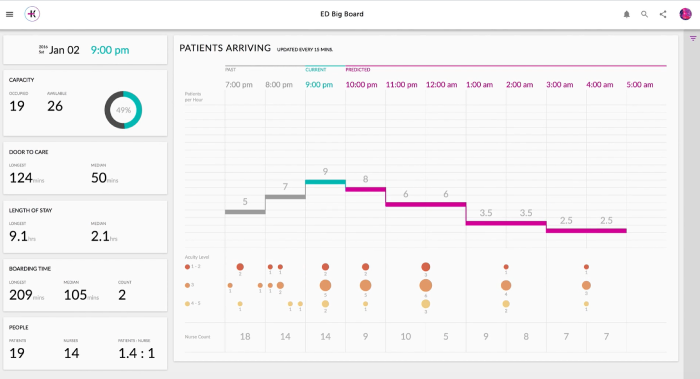
Also, Machine Learning can be used to track and manage the patients’ flow. It can predict the number of patients arriving so that the staff can be ready.
Apart from predicting diseases, pathologists can rely on Machine Learning to see if the patient can benefit from new types of treatments and therapies. This way healthcare workers can treat patients and distribute medicine more effectively.
Artificial Intelligence for Data Analytics
Artificial Intelligence refers to machines that are able to reason, make classifications and decisions that otherwise require human intelligence. Put in other words, computers save the effort for humans to think. Now they are even better at it, managing to juggle huge volumes of data and find value where humans can’t.
To gain a competitive advantage, get more comprehensive analytics and achieve their business goals, companies start experimenting with primitive Artificial Intelligence. As an example, many companies now introduce language recognition systems to have it perform basic customer service.
What Companies Can Get From Using Artificial Intelligence for Data Analytics
AI has several applications to data analytics as well. Some of the applications can be similar to those of ML, like Computer Vision, Predictive Analytics, and Natural Language Processing. The others include:
- Applied Intelligence. Applied Intelligence is made up of three components: Artificial Intelligence, Analytics, and Automation. Strong analytics helps to extract the most value out of raw data, AI makes decisions autonomously based on the data, and Automation makes it possible for a business to produce the service en masse.
- Business Intelligence. AI helps BI systems to work with information more efficiently, avoid data overloads, and make sense of the business-related data.
- Data Discovery. Artificial Intelligence applies a deeper analysis to the gathered information to discover and pinpoint insights that could not have been outlined by regular Data Analytics methods.
Businesses use AI and Data Analytics to create better customer interaction experience, using it to analyze the data from e-commerce platforms, chatbots, robocalls, and other sources.
AI and Data Analytics Use-Cases
Marketing — companies can use technology to study the content and deliver it to the right audience. Take Twitter as an example — the company uses a mix of ML and AI to evaluate tweets considering many factors. The system scans thousands of tweets per second determines which ones have the potential to bring the most engagement.
Security — apart from picking the most engagement worthy tweets for its users, twitter applies AI to their content moderation system to keep the users on the platform safe.
The company applies the technology to identify and block any hateful, racist, or any other inappropriate content. As Twitter has implemented AI, in six months it managed to block around 300 000 terrorist accounts.
Transportation — it benefits from AI-powered Data Analytics as well. The ability to process the information from many sources as fast as possible and make a decision based on that is crucial to building self-driving vehicles that are safe to use.
AI-powered transportation management systems can also gather information on traffic and adjust the scheduling of public transport. Also, AI allows for tweaking traffic lights patterns to streamline the traffic flow.
E-commerce — retailers utilize Artificial Intelligence to deal with transaction records. Such AI solutions as SAP’s HANA make it possible for a company to manage high volumes of operations at a pace.
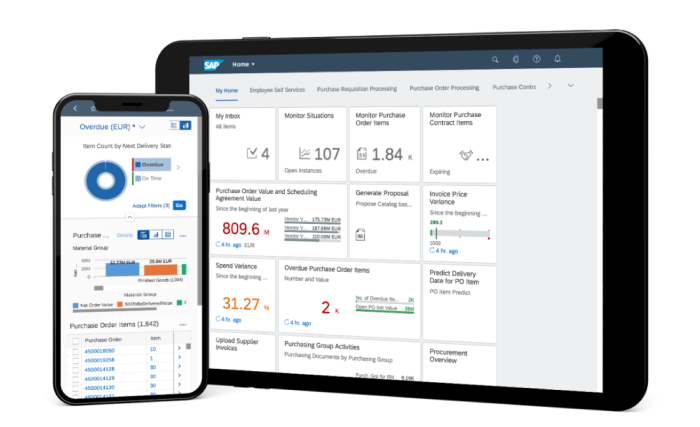
Commerce companies can make good use out of recommender systems as well. The Apptus eSales solution allows for automating the process of picking the items that might appeal to potential customers.
Industry — AI studies the data to find out when the production equipment can fail or malfunction. Having that information, production managers can schedule maintenance routines, send repair teams, and take other actions to keep the downtime low.
Predictive Maintenance is a great asset to the industry. The exciting thing here is that Artificial Intelligence allows for making cost-saving decisions with the help of past trends and real-time data.
Regular Predictive Maintenace sometimes called a Total Predictive Maintenance — or TPM. TPM systems perform repairs based on historical data and schedules of when maintenance is expected or needed.
The new layer to TPM is AM — Autonomous Maintenance. This type of maintenance relies on equipment operators repairing the machines by themselves, letting the technicians to focus on bigger tasks of making the machine and the whole system more reliable.
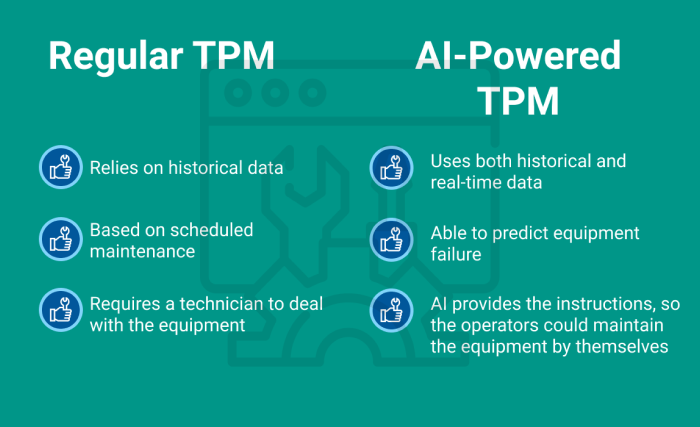
Artificial Intelligence is what makes adopting AM much easier. The technology lets operators work more efficiently — both with fixing the machine and making sure it won’t break down. It turns data into meaningful insights that let operators better understand their equipment.
Finance — Data Analytics can be used to juggle the information of the bank clients and handle credit scoring. With Artificial Intelligence applied, the bank can take it even further and predict the outcomes giving loans to certain customers.
The AI-based system can unveil the hidden relationship between variables which could’ve been overlooked by a traditional credit-scoring system. The system also benefits from AI’s ability to provide more complex rules for scoring, rather than more trivial ones of a traditional method.
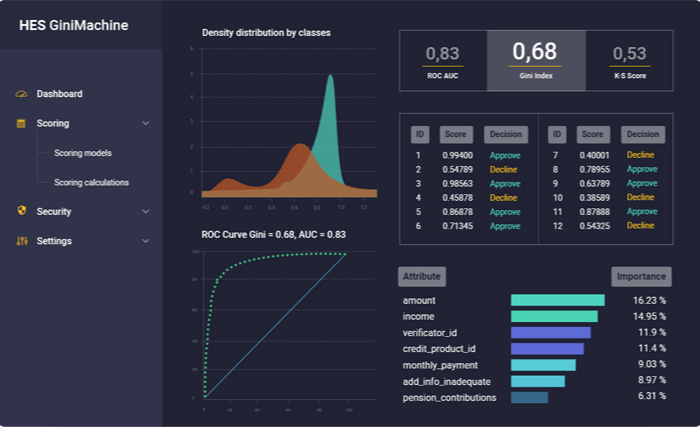
On top of that, the Artificial Intelligence system constantly improves itself, learning from the new data that the user feeds it. At the same time, traditional credit-scoring relies on a simple analysis of historical data.
Make the Data Work for You
Data is at the center of technological progress these days. But just having the data gathering tools with simple analytics does not cut it. To keep the businesses going and improving themselves, they need to be smart about every piece of information that they have.
Machine Learning and Artificial Intelligence are technology that can help make sense of complex data. More than that, the systems can make conclusions and decisions using the information might have been overlooked, dismissed, or misinterpreted.
Adopting ML and AI to work with data analysis lets the business target their clientele better with ds, promotions, and discounts; it helps study the audience more thoroughly and figure out the best approach to convert them into clients; it makes treating diseases more efficient and comprehensible; keeps the security in check both online and offline.

HQSoftware Founder
Having founded the company in 2001, uses his broad knowledge to drive the company forward. Ready to share his wisdom on software development and technology insights
Related Posts
View All
We are open to seeing your business needs and determining the best solution. Complete this form, and receive a free personalized proposal from your dedicated manager.

Sergei Vardomatski
Founder






